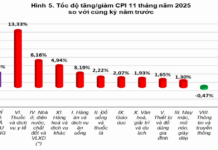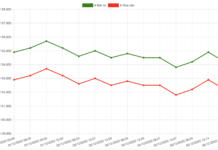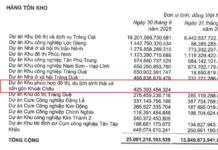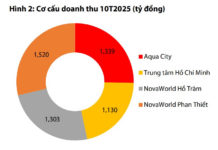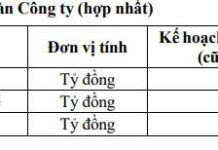UNEMPLOYMENT BENEFITS: VIETNAM’S PROPOSED CHANGES TO ITS EMPLOYMENT LAW
In a recent report, the Ministry of Labour, Invalids, and Social Affairs proposed changes to the country’s Employment Law, with a focus on unemployment benefits.
ANNUAL UNEMPLOYMENT BENEFITS COST AROUND VND 10 TRILLION
According to statistics from the Ministry, between 2015 and 2023, the number of people participating in unemployment insurance increased year over year, with an average growth rate of 6.08%. By the end of 2023, the number of people with unemployment insurance accounted for 31.6% of the labor force of working age.
During this period, on average, 826,000 people received unemployment benefits each year, with the highest number in 2020, when over 1.087 million people received these benefits (accounting for about 6-8% of insured workers).
On average, VND 10 trillion is spent on unemployment benefits annually. This amount is expected to increase each year due to the rising number of insured individuals and higher contribution and benefit rates.
The Ministry attributes the high cost of unemployment benefits to the current policy, which focuses more on providing financial assistance to the unemployed rather than adequately addressing measures to prevent unemployment and effectively linking the insurance scheme to the labor market.
PROPOSED CHANGES TO UNEMPLOYMENT INSURANCE POLICY
The current unemployment insurance policy includes a scheme to support employers by providing training and skill enhancement programs for employees to maintain their jobs. However, the conditions to access this scheme, as outlined in the Employment Law and its guiding documents, are stringent and rarely met. As a result, employers face challenges in benefiting from this provision. To date, no employer has received support under this scheme as per the current legal framework.
During the COVID-19 pandemic, the government implemented Resolution 68/NQ-CP to support both employers and employees affected by the pandemic. By relaxing the conditions, 66 employers were able to access the scheme, providing training to 8,230 employees. The total support amount from the Unemployment Insurance Fund was VND 38.87 billion.
There are four types of support available to employees under the current policy: unemployment benefits, job counseling and referral services, vocational training, and health insurance. However, most employees opt for unemployment benefits.
As of March 2024, over 14.6 million people have received job counseling and referral services. However, there is no regulation on using the Unemployment Insurance Fund for these activities, even though they are entitled benefits for employees. This lack of regulation impacts the effectiveness of job counseling and referral services.
As of the same period, over 261,600 people have received vocational training support, and this number tends to follow the trend of unemployment benefit recipients.
The vocational training support scheme primarily serves the needs of the unemployed, neglecting those employed who seek skill development or enhancement. Moreover, the support only covers training fees and does not include other assistance during the training period. This situation creates difficulties for those who are not receiving unemployment benefits but are in need of such training.
SUGGESTED ENHANCEMENTS TO THE UNEMPLOYMENT INSURANCE POLICY
In the upcoming revision of the Employment Law, the Ministry of Labour, Invalids, and Social Affairs intends to enhance the unemployment insurance policy. The proposed changes aim to support both employers and employees in maintaining employment and fully utilizing the policy’s functions, ensuring it serves as a tool for labor market governance.

The revised law is expected to introduce additional measures to support employers in recruiting and employing labor, especially for specific worker groups, using the Unemployment Insurance Fund.
To achieve this, the law will amend the conditions for employers to access support for training and skill enhancement programs, ensuring practicality. Additionally, a new provision will be added to support employers who hire people with disabilities.
Job counseling, referral services, and vocational training support will be further strengthened to address the issue of employees solely relying on unemployment benefits.
For instance, the law will include a provision on the funding source for job counseling and referral services, specifying that these services will be funded by the Unemployment Insurance Fund at the market rate.
The scope of vocational training support will be expanded to include training courses, skill enhancement programs, and the addition of a provision to support meals for employees during their training period, even if they are not receiving unemployment benefits.
Furthermore, the conditions for receiving unemployment benefits or vocational training support will be adjusted, including adding cases where individuals are ineligible for such support.
With these proposed solutions, the Ministry of Labour, Invalids, and Social Affairs estimates that the number of workers receiving unemployment benefits will decrease to approximately 6.5% of insured workers annually, resulting in a reduction of about 150,000 benefit recipients each year.
In 2023, the average unemployment benefit was VND 3.5 million per person per month, and the average duration of benefit receipt was 5 months. With these figures, the expected reduction in expenditure from the Unemployment Insurance Fund is about VND 2,625 billion, equivalent to approximately 10% of the total annual unemployment insurance contributions.
The draft amended Employment Law is expected to be submitted to the National Assembly for discussion and initial feedback during its 8th session in October 2024.
The law will focus on key policy areas such as flexible, efficient, modern, and sustainable labor market governance, enhancing unemployment insurance as a tool for labor market governance, developing vocational skills and improving human resources, and promoting sustainable job creation.
Over 64% of unemployed beneficiaries lack qualifications or certifications.
Unemployment benefit recipients without degrees or certificates in Q4/2023, although slightly decreased compared to Q3, still remain high and make up the largest proportion compared to other groups, according to the Ministry of Labor, Invalids and Social Affairs.
Unemployment Insurance: Unlocking Enhanced Benefits After 12 Years of Coverage.
The Vietnam General Confederation of Labour has proposed an extended unemployment insurance package for long-serving employees, with benefits kicking in after 12 years of continuous service. This proposal was put forward during a consultative meeting on the amended Employment Law draft.








